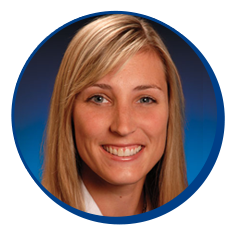What You Need to Know About Pediatric Concussions
EVERY parent should know the basics about CONCUSSION! It may catch you off guard to talk about concussion when we are gearing up for a run, but it’s a good chance for me to teach about one of the most commonly missed injuries in children.
As a pediatric sports medicine physician, one of the main conditions I take care of in my practice is pediatric concussion. We all know this topic has been a focus in the media recently, and likewise, it has been at the forefront of research efforts to learn more. I’d like to share with you some of the most salient points about the latest on pediatric concussion.
As with any injury, early recognition is key. Concussions that are caught early and managed properly will likely resolve more quickly. It’s important to know that most concussions in kids under 10 years old occur from falls, either on the playground or while riding their bikes. In children 10 and up, sport injuries are a more common cause of concussion. Rules governing proper play in youth sports continue to shift to protect our youth from dangerous head injuries. In addition, there has been a significant effort to educate our coaches, parents and even kids about what symptoms to look for and what to do when you suspect a concussion.
Be on the lookout for head injury that is followed by any of these symptoms: headache, nausea, dizziness, vision blurring, vomiting, fatigue, sleepiness or trouble sleeping, being off-balance, increased sensitivity to bright lights or loud noises, being overly emotional or irritable, feeling sad, anxious or nervous, forgetfulness or difficulty concentrating, being slow to respond to questions or confusion. Let your doctor or other health care provider trained in concussion determine whether or not an injury should be considered a concussion.
When it comes to taking care of children with concussions, we know that rest is paramount. In the first 3 days, encourage physical and cognitive rest and schedule a doctor’s appointment. Avoid giving ibuprofen until the doctor okays it. Your doctor will get your child moving again as soon as it is safe, and then supervised light exercise may actually help the healing process!
You can expect the normal concussion to take up to 2-3 weeks to get better in the younger age group. This is one injury that takes longer to heal in children than in adults, due to the developing brain. While healing, avoidance of another head injury is the number one priority, as repeated head trauma can cause significant damage.
Concussion symptoms abate naturally and gradually over time. Symptoms may spike with loud environments or school work and typically ease off again with rest. Red flags include worsening or progressive headache, persistent vomiting, lethargy, and decreased mental status. If your doctor suspects an associated neck injury or any visual or balance issues are a problem, he or she may prescribe physical therapy.
Feel free to ask me any questions this weekend at the race! As we enter the our final week of the Kids XC series at Charm City Run we are looking forward to the cooler weather (fingers crossed!) and a fun event at McHenry Row. Join me for a Warm Up right before the races begin. See you soon! – Dr. Lindsay Jones
About the Author: Dr. Lindsay W. Jones
Lindsay W. Jones, MD, FAAP, CAQSM is a Pediatric Sports Medicine specialist at MedStar Union Memorial Orthopedics. She practices in Ellicott City and Timonium. She is the Team Physician for Goucher College and UMBC. Her love for sports medicine has roots in her own history of being a multi-sport athlete including basketball, soccer, pole vaulting, high jumping, the 400m and 800m relays, softball, volleyball, and flag football. These days you can find Dr. Jones running local 5K’s or 10 milers, chasing her toddler, or running around Baltimore with her dog. In the last 5 years Dr. Jones has learned a lot about all sports through her patients- she’s taken care of gymnasts, dancers, jump rope champions, competitive cheerleaders, swimmers, twirlers, martial artists, riders and many more! Dr. Jones is committed to getting her patients back to activity ASAP keeping in mind safety and re-injury prevention.



